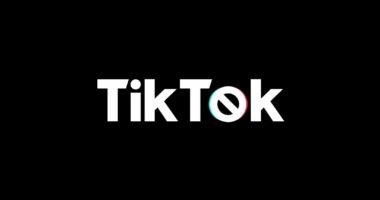Influencer marketing has become an integral part of many startup brands’ marketing strategies. It involves collaborating with individuals who have a strong online presence and a large following on social media platforms. These influencers have the power to sway the purchasing decisions of their followers and can help increase brand awareness, drive traffic, and boost sales for startup brands. By leveraging the trust and credibility that influencers have built with their audience, startup brands can effectively reach their target market and build a loyal customer base.
Influencer marketing is a powerful tool for startup brands because it allows them to tap into the existing communities and networks that influencers have already established. This can help startup brands gain exposure to a wider audience and build credibility in their niche. Additionally, influencer marketing can be more cost-effective than traditional advertising methods, making it an attractive option for startups with limited marketing budgets. As the digital landscape continues to evolve, influencer marketing is expected to play an even more significant role in helping startup brands stand out in a crowded marketplace.
Key Takeaways
- Influencer marketing is a powerful strategy for startup brands to increase brand awareness and drive sales.
- Leveraging micro-influencers can be an effective way for startup brands to reach a larger audience and increase brand awareness.
- Collaborating with niche influencers can have a significant impact on the success of a new product launch for startup brands.
- Utilizing influencers to drive traffic and sales can be a successful strategy for new e-commerce businesses.
- Building a community around a new brand can be achieved through influencer marketing, creating long-term brand loyalty and engagement.
Case Study 1: How a Startup Brand Leveraged Micro-Influencers to Increase Brand Awareness
One successful example of a startup brand leveraging influencer marketing is the case of a new athleisure wear company that collaborated with micro-influencers to increase brand awareness. The brand identified micro-influencers in the fitness and wellness niche who had a strong and engaged following on platforms like Instagram and TikTok. These micro-influencers were authentic and relatable, making them the perfect fit for the brand’s target audience.
The micro-influencers created content featuring the brand’s products, showcasing them in their daily workout routines and sharing their genuine experiences with the products. This approach helped the startup brand reach a highly targeted audience and build credibility within the fitness community. As a result, the brand saw a significant increase in brand awareness, with many new customers discovering the brand through the micro-influencers’ content. The collaboration also led to an uptick in sales, as the authentic endorsements from the micro-influencers resonated with their followers, driving them to make purchases.
Another key benefit of working with micro-influencers was the cost-effectiveness of the campaign. Since micro-influencers typically have smaller followings compared to macro-influencers or celebrities, they often charge lower fees for collaborations. This allowed the startup brand to stretch their marketing budget further and work with multiple micro-influencers to create a diverse range of content. Overall, this case study demonstrates how leveraging micro-influencers can be an effective strategy for startup brands looking to increase brand awareness and reach a highly targeted audience.
Case Study 2: The Impact of Collaborating with a Niche Influencer on a New Product Launch
In another case study, a startup brand in the beauty industry collaborated with a niche influencer to launch a new skincare product. The brand identified an influencer who was known for her expertise in skincare and had a dedicated following of skincare enthusiasts. The influencer was seen as a trusted authority in the niche, making her endorsement of the new product highly valuable.
The collaboration involved the influencer creating educational and informative content about the new skincare product, highlighting its key benefits and demonstrating how it could address common skincare concerns. The influencer also engaged with her audience by hosting live Q&A sessions and sharing user-generated content featuring the product. This approach helped generate buzz around the new product launch and positioned the startup brand as a credible player in the competitive beauty industry.
As a result of the collaboration, the startup brand saw a surge in pre-orders and a high level of engagement from the influencer’s audience. The partnership not only drove sales for the new product but also helped the brand establish itself as a trusted name in the skincare space. By tapping into the influencer’s expertise and loyal following, the startup brand was able to effectively launch their new product and gain traction in a competitive market.
Collaborating with niche influencers can be particularly impactful for startup brands looking to introduce new products or break into specific market segments. Niche influencers often have a deep understanding of their audience’s preferences and can provide valuable insights into how to position a product effectively. This case study highlights the importance of aligning with influencers who have expertise in a particular niche and leveraging their influence to drive success for new product launches.
Case Study 3: Using Influencers to Drive Traffic and Sales for a New E-commerce Business
A startup e-commerce business sought to drive traffic and sales for its online store by partnering with fashion and lifestyle influencers. The brand identified influencers whose personal style and content resonated with its target audience, which consisted of fashion-forward millennials and Gen Z consumers. The influencers were tasked with creating visually appealing content featuring the brand’s products and showcasing how they could be styled in different ways.
The collaboration resulted in an influx of traffic to the e-commerce website, as followers of the influencers were inspired to explore the brand’s offerings after seeing them featured in authentic and aspirational content. The influencers also shared exclusive discount codes with their followers, incentivizing them to make purchases and driving sales for the startup e-commerce business. The partnership not only helped increase immediate sales but also contributed to building long-term brand awareness and loyalty among the influencers’ audiences.
One of the key advantages of using influencers to drive traffic and sales for an e-commerce business is their ability to create visually compelling content that showcases products in an authentic way. This can be particularly impactful for startups that are looking to differentiate themselves in a crowded online marketplace. By leveraging influencers’ creativity and aesthetic sensibilities, e-commerce businesses can capture the attention of potential customers and drive them to make purchases.
Overall, this case study illustrates how collaborating with fashion and lifestyle influencers can be an effective strategy for startup e-commerce businesses looking to drive traffic and sales. By aligning with influencers whose style and content resonate with their target audience, e-commerce brands can leverage their influence to create engaging content that drives conversions and builds brand loyalty.
Case Study 4: The Role of Influencer Marketing in Building a Community Around a New Brand
A newly launched wellness brand aimed to build a community around its products by partnering with wellness and lifestyle influencers. The brand’s mission was centered around promoting holistic well-being, and it sought to align with influencers who shared similar values and resonated with health-conscious consumers. The influencers were tasked with creating content that highlighted the brand’s products as part of a holistic lifestyle, emphasizing their role in promoting physical, mental, and emotional wellness.
The collaboration helped the startup wellness brand establish itself as more than just a purveyor of products but as a lifestyle brand that championed overall well-being. The influencers’ content not only showcased the products but also provided valuable insights and tips on leading a balanced and healthy lifestyle. This approach resonated with their audiences, leading to increased engagement and positive sentiment towards the brand.
In addition to driving product awareness and sales, the partnership with wellness influencers played a crucial role in building a community around the brand. The influencers served as advocates for the brand’s mission and values, attracting like-minded individuals who were passionate about holistic wellness. This sense of community not only fostered customer loyalty but also created opportunities for user-generated content and word-of-mouth referrals, further amplifying the brand’s reach.
Building a community around a new brand is essential for long-term success, especially for startups looking to establish themselves in competitive markets. By collaborating with influencers who embody their brand values, startups can leverage influencer marketing to foster a sense of belonging among their target audience and create a loyal community of customers and advocates.
Case Study 5: How a Startup Brand Utilized Influencer Partnerships to Create Authentic Content and Engage Audiences

A startup brand in the food and beverage industry leveraged influencer partnerships to create authentic content and engage audiences on social media platforms. The brand identified food bloggers, chefs, and culinary influencers who had a strong following of food enthusiasts and shared a passion for high-quality ingredients and innovative culinary experiences. The influencers were invited to participate in immersive experiences such as cooking workshops, tasting events, and behind-the-scenes tours of the brand’s production facilities.
The partnership resulted in an array of engaging content that showcased the brand’s products in unique culinary settings, highlighting their versatility and premium quality. The influencers’ authentic enthusiasm for the brand’s offerings resonated with their followers, leading to increased interest and curiosity about the products. The immersive experiences also provided opportunities for storytelling and behind-the-scenes glimpses into the brand’s ethos, further deepening the connection between the brand and its audience.
By collaborating with food and beverage influencers, the startup brand was able to create compelling content that went beyond traditional product endorsements. The immersive experiences allowed for genuine interactions between the influencers and the brand, resulting in content that felt organic and relatable to their audiences. This approach not only drove engagement but also positioned the brand as an authority in its industry, garnering trust and credibility among consumers.
This case study demonstrates how startup brands can utilize influencer partnerships to create authentic content that resonates with audiences and drives meaningful engagement. By providing influencers with immersive experiences that align with their passions, brands can co-create compelling content that captures attention, sparks conversations, and ultimately drives positive sentiment towards the brand.
Key Takeaways and Best Practices for Startup Brands in Influencer Marketing
In conclusion, influencer marketing offers numerous opportunities for startup brands to increase brand awareness, drive traffic, boost sales, build communities, and engage audiences authentically. By collaborating with influencers who align with their values and resonate with their target audience, startups can leverage influencer marketing as a powerful tool for growth and differentiation in competitive markets.
Key takeaways for startup brands looking to succeed in influencer marketing include:
– Identifying micro-influencers who have an authentic connection with their audience can be an effective strategy for increasing brand awareness within highly targeted communities.
– Collaborating with niche influencers who are experts in specific industries or product categories can help drive success for new product launches by leveraging their credibility and authority.
– Leveraging fashion, lifestyle, or wellness influencers can be instrumental in driving traffic and sales for e-commerce businesses by creating visually compelling content that resonates with their target audience.
– Building communities around new brands can be achieved by partnering with influencers who share similar values and beliefs, fostering long-term customer loyalty and advocacy.
– Utilizing influencer partnerships to create authentic content that engages audiences can help startups position themselves as industry authorities while driving meaningful engagement on social media platforms.
By implementing these best practices, startup brands can harness the power of influencer marketing to achieve their marketing objectives while building strong relationships with both influencers and consumers alike. As influencer marketing continues to evolve, it will remain an essential strategy for startups looking to carve out their space in competitive industries and connect with their target audience authentically.
Check out this related article on influencer marketing: “The Power of Micro-Influencers: How Small Brands Can Make a Big Impact”. This insightful piece delves into the effectiveness of micro-influencers for small brands and provides valuable insights on leveraging their influence to achieve marketing success. It’s a must-read for anyone interested in understanding the potential of influencer marketing for startup brands.
FAQs
What is influencer marketing?
Influencer marketing is a form of marketing that focuses on using key leaders to drive a brand’s message to the larger market. These individuals are known as influencers and they have a significant following on social media platforms.
What are some benefits of influencer marketing for startup brands?
Influencer marketing can help startup brands increase brand awareness, reach new audiences, build credibility, and drive sales. It can also help startups to establish a strong online presence and connect with their target audience in a more authentic way.
What are some successful influencer marketing case studies from startup brands?
Some successful influencer marketing case studies from startup brands include collaborations with influencers to launch new products, increase brand visibility, and drive engagement on social media platforms. These case studies often showcase how influencer marketing can be a powerful tool for startups to grow their business.
How can startup brands find the right influencers for their influencer marketing campaigns?
Startup brands can find the right influencers for their influencer marketing campaigns by conducting thorough research to identify influencers who align with their brand values, target audience, and marketing goals. They can also use influencer marketing platforms and agencies to connect with relevant influencers.
What are some key metrics to measure the success of influencer marketing campaigns for startup brands?
Some key metrics to measure the success of influencer marketing campaigns for startup brands include reach, engagement, website traffic, conversion rates, and return on investment (ROI). These metrics can help startup brands evaluate the effectiveness of their influencer marketing efforts and make data-driven decisions for future campaigns.






